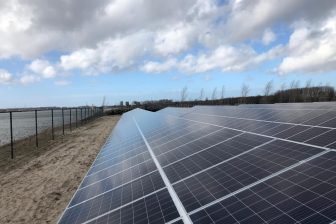China maakt ernst met klimaatbeleid
1 juli 2015 – China heeft zijn klimaatactieplan ingediend voor de voorbereidingen van de klimaatonderhandelingen eind dit jaar in Parijs. ‘De grootste CO2-uitstoter is om’, kopte de Volkskrant.
Vorig jaar had China, samen met de VS, al aangekondigd serieus aan de slag te gaan met het terugdringen van de CO2-uitstoot (een kwart van de mondiale CO2-uitstoot komt voor rekening van China).
De Volkskrant: ‘Nieuw is wel dat China belooft de ‘koolstofintensiteit’ van zijn economie (de CO2-emissie per eenheid bruto nationaal product) voor 2030 te zullen terugdringen met 60 tot 65 procent vergeleken met het niveau van 2005. Dit plan, dat bij economische groei niet per se tot een absolute afname van de totale CO2-emissies leidt, is een voortzetting van een eerder doel van 40 tot 45 procent afname in 2020. Dit plan, dat bij economische groei niet per se tot een absolute afname van de totale CO2-emissies leidt, is een voortzetting van een eerder doel van 40 tot 45 procent afname in 2020.’
China wil het aandeel duurzame energie verhogen tot 20% in 2030, terwijl het land daarin nu al voorop loopt.
Uit een bericht van Climate Progress
‘Even small decreases in China’s emissions seem like monumental feats when compared to other countries. According to a recent analysis, in the first four months of 2015, China’s coal use fell almost 8 percent compared to the same period last year — a reduction in emissions that’s approximately equal to the total carbon dioxide emissions of the U.K. over the same period.
Late last year the government announced it plans to cap coal use by 2020, a necessary target to meet its global pledge of peaking greenhouse gas emissions by 2030. Reducing its use of coal, which still generates three-fourths of China’s electricity, is also a key element of China’s renewable energy target of 20 percent non-fossil fuels in “primary energy consumption by 2030.”
China is also the leading renewable energy investor, spending some $89.5 billion last year on clean energy, almost a third of the global total.’
Uit een bericht van de UNFCCC
Including the People’s Republic of China, 43 parties to the UNFCCC have formally submitted their INDCs (Intended Nationally Determined Contribution ). (…) The Paris agreement will come into effect in 2020, empowering all countries to act to prevent average global temperatures rising above 2 degrees Celsius and to reap the many opportunities that arise from a necessary global transformation to clean and sustainable development.
UNFCCC Executive Secretary Christiana Figueres is encouraging countries to come forward with their INDCs as soon as they are able, underlining their commitment and support towards this successful outcome in Paris. Governments
agreed to submit their INDCs in advance of Paris. (…) Countries have agreed that there will be no back-tracking in these national climate plans, meaning that the level of ambition to reduce emissions will increase over time.
Bronnen
Volkskrant, 1 juli 2015: China, de grootste CO2-uitstoter, is om (via Blendle) Climate Progress, 30 juni 29015: China Just Made Its Plans To Fight Climate Change Official
UNFCCC, 30 juni 2015: China Submits its Climate Action Plan Ahead of 2015 Paris Agreement
UNFCCC Country Profile: China



